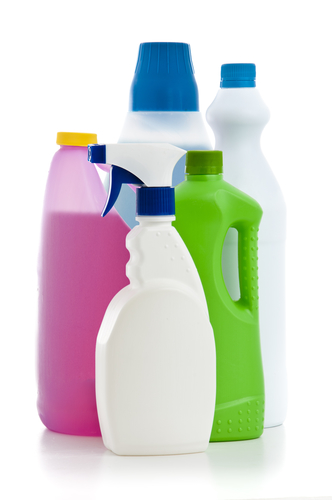
Inhalant Abuse: Getting High with Household Products
Drugs that cause addiction aren’t always bought right off the street from the pockets of a drug dealer. The horrific reality that many parents don’t understand is that there are addictive substances in everyday household products. Inhalants are addictive chemicals found in glues, paints, and aerosol cans that are “huffed”, or inhaled, by its users. Inhalant abuse is commonly seen amongst children and teenagers, as these products are easily attainable. While children may be aware that these products can get them high for a short while, they are unaware of the imminent danger they put their bodies, mental health, and emotional stability in.
What are Inhalants?
There are literally thousands of products, many of which are guaranteed to be in your home, that are considered inhalants. Cleaning supplies, air fresheners, office products, and even food containers can all include inhalants. Just a few examples of specific products that include inhalants are:
- Dusting spray
- Permanent markers
- Whipped cream cans
- Gasoline
- Paint thinner
- Spray paint
- Nail polish remover
- Lighter fluid
- Disinfectant
- Rubber cement
Inhalants and Teenagers
It has recently been recorded that 1 of every 5 American children in the eighth grade, 13 or 14 years old, has tried inhalants. They know they get high from these products, but the don’t know that they are inhaling poison into their bodies. Lack of education on this topic has caused a national dilemma because many of these children are dying from inhaling solvents, aerosol cans, nitrous oxide, or medical gasses. Parents must educate their children on the harmful effects of these products so that irreversible damage, death, or further addiction does not take place.
What are the Effects of Inhalants?
Most inhalants bring about a very brief time frame of the desired effects. People use inhalants to retain feelings of euphoria, excitement, hallucinations, and a quick rush. Often times these drugs are used over and over again because of the shortened effects. Obviously, this causes more harm than good and raises the chance for the development of an addiction. Also, the damaging long and short-term effects of using inhalants are terrifying. Short-term use of inhaling these drugs involve effects including:
- Agitation
- Loss of coordination
- Headaches
- Impaired judgment
- Delusions
- Rapid heart rate
- Unconsciousness
- Death
Long-term effects of Inhalants include:
- Muscle spasms
- Apathy
- Irritability
- Anxiety and depression
- Organ damage (lungs, liver, kidney, heart, etc.)
- Brain damage
- Amnesia
- Loss of senses
- Heart failure
- Damage to bone marrow
- Diminished intelligence
- Coma
- Addiction
- Death
The mere minute-long effects that inhalants are used translates into lifelong impairments. With the use of inhalants spanning over long periods of time, nerves may subsequently lose their coating from the toxic chemicals. Additionally, this may cause irreperable muscle spasms and frequent shaking. Brain damage caused by regular use also leaves individuals unable to retain new information or even hold a conversation with other people. Even though many of the long-term effects of using inhalants are permanent, an individual that is addicted to inhalant abuse is likely to continue use even if they are aware of the risks and damages that come with using inhalants.
Sudden Sniffing Death Syndrome
Along with the long list of side effects, inhalant abuse has the potential for sudden sniffing death syndrome, in even first-time users. This happens when the brain lacks oxygen from huffing chemicals and stress hormones are released to help the body react. Instead of helping, these stress hormones increase the heart rate until it ceases to beat, resulting in rapid death. The also body never adapts to the poisonous inhalants; consequently, this can happen to long-time inhalant abusers or first-time experimenters.
Inhalant Abuse Leading to Addiction
Inhalants are addictive, and frequent, long-time users often report to having cravings and desires for their inhalant of choice. Additionally, dependence is seen when individuals stop using and begin experiencing mild withdrawal symptoms. Also, studies show that those that have abused inhalants during childhood are at a higher risk for developing concurring addictions to alcohol, cigarettes, and other addictive substances. Inhalants are a central nervous system depressant, which provides a response to dopamine receptors in the brain. Much like illegal drugs such as heroin and cocaine, dopamine plays a part in an individual’s feelings of euphoria and relaxation after inhalant abuse. And, just like illicit hard drugs seen on the street, this dopamine reaction in the brain can lead to both physical and psychological addiction.
Treatment for Inhalant Abuse
Treatments for addiction to inhalants call for medical stability and therapy. Additionally, treatment for addiction is successful in those that wish to seek help. No one can convince or decide for an individual that they need treatment, so if your loved one is using inhalants, it is vital for you to educate them on the dangers of their actions. Since many inhalant abusers are younger individuals, it is our duty as parents, caregivers, and family to teach our youth about the consequences of their actions so they do not leave this earth too early. If you or a loved one requires treatment for inhalant addiction, please reach out for help as soon as possible. One more inhalant use could be your last.






